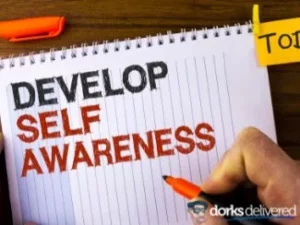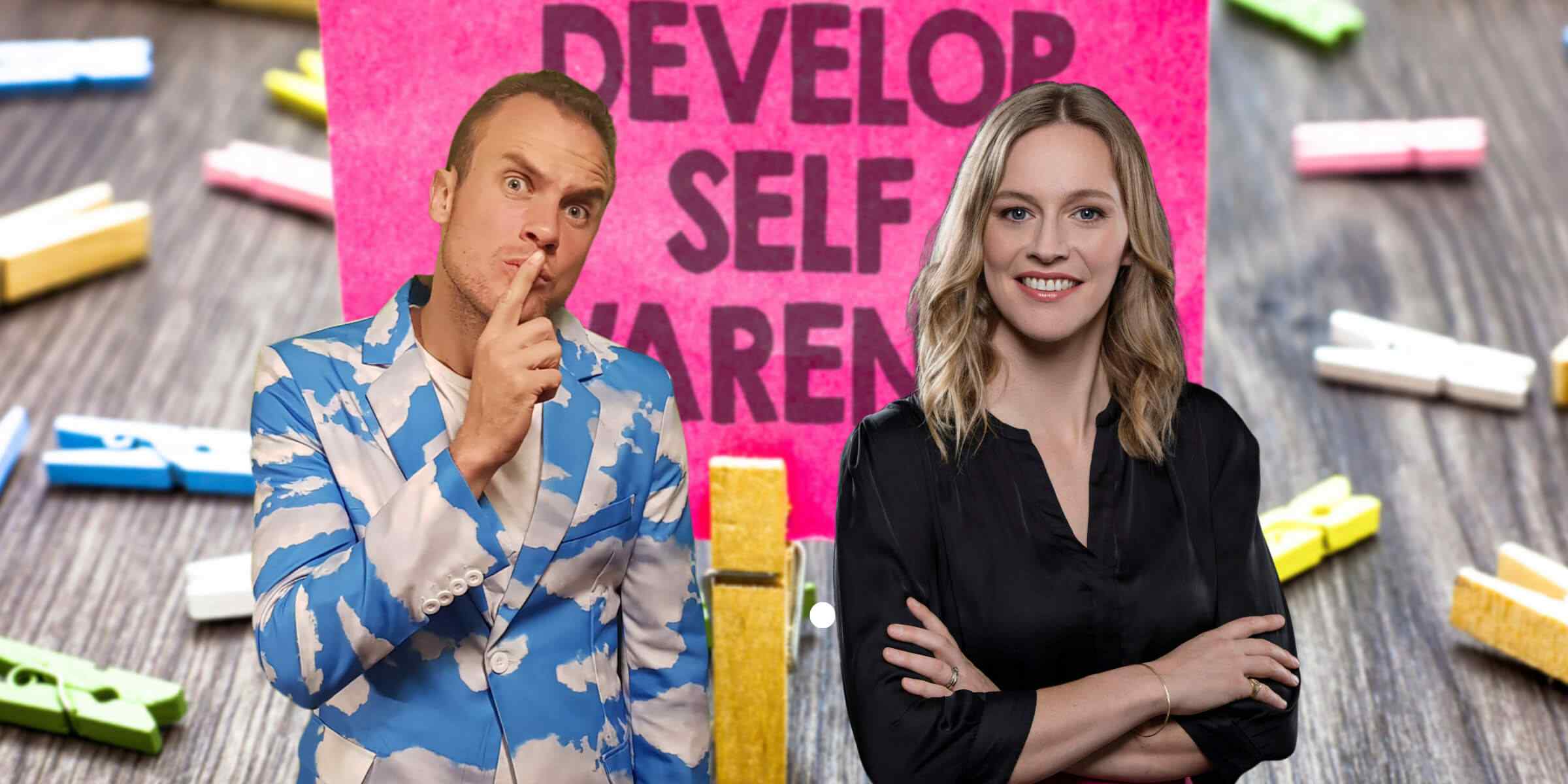Self-awareness is a must-have trait for any business owner. Self-aware leaders are able to regulate their emotions, respond to feedback, and adapt to changing situations in a more effective manner. Josh was joined by Lucy Faulconer, a leadership coach with a background in psychology and management consulting to discuss all things to do with how self-awareness leads to better leadership.
What Are the Causes of Poor Leadership?
The main thing with leadership is that sometimes we don’t understand exactly what that means, and we associate it with being in a position where you lead others and you’ve got a team of individuals who are reporting directly to you.
Leadership is something that we all have. We are all personal leaders in our lives. How we own whatever is going on for us, what we want to create in life, how we want to move forward and maybe create a certain kind of life or a certain kind of business, where we want to take our career—that’s leadership.
Why is Self-Awareness Important for Being a Good Manager or Leader?

Self-Awareness From an Ontological Perspective
I’m an ontological coach, so I come from a perspective that awareness is your connection to reality. Ontology is the study of reality: what exists, what doesn’t exist, and the fundamental aspects of reality.
For me, awareness is being intentionally conscious of your consciousness. It is how you relate to what you know and understand what you don’t know and don’t understand.
Awareness is always intentional and directed at something. That’s really critical for us to understand that awareness doesn’t just happen. You’ve got to be intentional around what you are aware of and what you choose to look at in life.
This distinction comes from the Being profile, which is one of the tools that I use with my clients. It’s based on how you connect with what’s happening in your life, what’s the real impact that you’re having on people in your team and in your business, and maybe one of the things that you’re looking away from.
Do you have tasks that you need to do more than three times every week? Optimize and automate so you can focus on more important things. Contact us for more details.
How do you measure self-awareness?
Sometimes there’s a disconnect between what people actually think they’re projecting and how they’re being in the world, how they think they’re being perceived to what is going on, and that’s your relationship to awareness.
You might think that you’re being really effective, and that people are loving you in a meeting, but you’re not checking. You’re not asking the questions. You’re not even asking for feedback from the people that you meet or you’re not even enquiring enough to get the feedback even if it was staring right at you.
What Can Get in the Way of Leaders Who Want to Improve Self-Awareness?

First, how do you create the conversations and the instances with your team where you can raise your own awareness of the impact that you’re having on them and what they need from you as their leader. That can be the feedback conversations that you create or the instances after you went to meet a client and spent time reflecting on what worked and what didn’t work. You’re creating those conversations with your team.
There’s always going to be judgment. We’re always judging and we’re always making assumptions of what the other person did and why they did them. But bring them more into the conversation as that’s not the only way of looking at something (e.g., “This is how I experienced the conversation with the client”). Then, you’re able to sit in that conversation and delve deeper into it (e.g., “Given that, how would we take it forward? Is there anything we need to adjust? Anything we need to change?”).
You’ll even start noticing what it takes: intention. That’s where awareness comes back in. You have to be intentional about creating those spaces where you’re challenging your own point of view and how you’re being perceived. Be willing to take yourself on and hear what’s actually happening to the people around you.
Have more time for your team and more important tasks when you automate repetitive tasks. Enquire now!
Does Culture Affect Your Self-Awareness?
I think bringing in the cultural aspect is always critical. I know that there are things that I can expect from clients in Chile that are different from how it would unravel with a client in Australia. For example, in Chile, there’s that Latin side, so we’re more flexible around time; things will run overtime and everyone’s okay with that. In Australia, time and how we manage time are very different. It’s so much easier to hold people accountable for arriving on time. Bringing in those little cultural distinctions to how I deal with clients and how you have conversations with people is really important.
Being able to notice that is something that you bring into how you interact and how you manage your own time and what you might be missing out on. It’s not as if it’s the best way or there’s a bad way of doing it. It’s just noticing that if that’s something you bring to the table when you’re in a meeting and even when you go on holiday, you’ll be missing out on things. It’s probably okay if you’re doing business, but if you’re on a holiday, you want to be able to choose to be different with your time.
I take that back to awareness, and I connect it with responsibility. If we go to awareness, it’s part of the business that the manager or leader was looking away from. He probably knew it had to be done, but he chose to ignore it. That’s the opposite of awareness—ignore. What are the things that you look away from in your business and then you become negligent about it?
If you didn’t know, you should have known. The cost to that business and the people that the manager was leading was great. That’s where the responsibility as a leader or as a manager comes in—being on top of how you relate to self-awareness, how you relate to what you know to be true, and what you’re not even looking at because it can cost you $10,000 or a lot more, such as one of the members of your team leaving because you haven’t had the right conversations with them at about the right thing at the right time because you are unaware of what’s going on.
Do you need help with a one-time or long-term project? We offer top-tier support. Enquire now!
How can a leader be more self-aware?
It goes back to the intention. If you own a business and you lead people who rely on you, then your responsibility is putting in place structures that keep you checking in with yourself—what are the things that you’re not looking at in your business?
For example, I’m part of the Alternative Board, and I sit with a board of directors where everyone has different experiences. I bring in my own problems and I get to discuss them with them.
But the main thing that I get out of it is that I become aware of their problems that I may not have been looking into in my business. For example, there’s someone from the insurance industry, and the examples and the stories that he brings in keep me on my toes.
Surround yourself with people who will support you and help you to identify your blind spots. That’s exactly what I do with clients, and that’s why so many business owners out there are working with coaches. As a leadership coach, I hold up a mirror for them and ask questions that will guide them to look into what’s going on in their business, their team, and their life so that they can identify the root causes of their problems.
Let’s hold up the mirror, and I’ll hold you accountable to keep holding the mirror up even if it’s uncomfortable and you’re so tempted to look away that you’re going to be taking action around the things that are critical for your business and leadership.
It doesn’t need to be perfect; you just go and explore. It’s bringing in this curiosity to go and find out, move that way, and then readjust if it works or if it doesn’t work instead of having it all together.
Get Uncomfortable
I’ve been working with coaches around my self-awareness and then I became a coach in 2015, which was when I started understanding this world of coaching. I noticed that whatever the challenge I’m facing at that moment, that’s what I need to deal with and become aware of and understand my own story and how I’m getting myself stuck in certain things. You get over that, and then maybe a year later you’re facing something else.
Whatever I’m doing, if it isn’t bringing me the results that I want, I’m going to take myself on and find someone who is going to take me out of my comfort zone to have a breakthrough. I’ve been building my business for the last year and a half, and what’s critical is surrounding myself with those people who make me really uncomfortable because they ask me questions that I’m not willing to ask myself. It may be because I’m not aware of them, so I can’t even think of the question. Sometimes, it’s because I can see it lurking around, but I thought that’s just too hard, so I just won’t look at it.
Get Vulnerable
We’re not human doing. We’re human being, so go one level deeper and ask who you’re being around it. When you are talking about wanting to have everything perfect, for me, I go straight into vulnerability. Can you be with vulnerability, with not knowing, with not understanding how you’re going to be perceived if you don’t have it all handled? Go to the being, not only the doing.
Accountability will just keep you in the doing, and it’s not only about that.
As an ontological coach, I work with Being profile. It’s a way of looking at yourself that you don’t normally get to because it’s not in the behaviours. It’s not in the doing. It’s actually in who you’re being. It takes you to a level that is quite confronting because you get to stand in front of a mirror and the first score that it will give you is your awareness score. That is, what’s your relationship to awareness? And given that, what’s the effectiveness you have in life? Any business owners out there who want to take themselves on and see something that they may not be looking into can give me a call.
Get in touch with Lucy Faulconer!





























